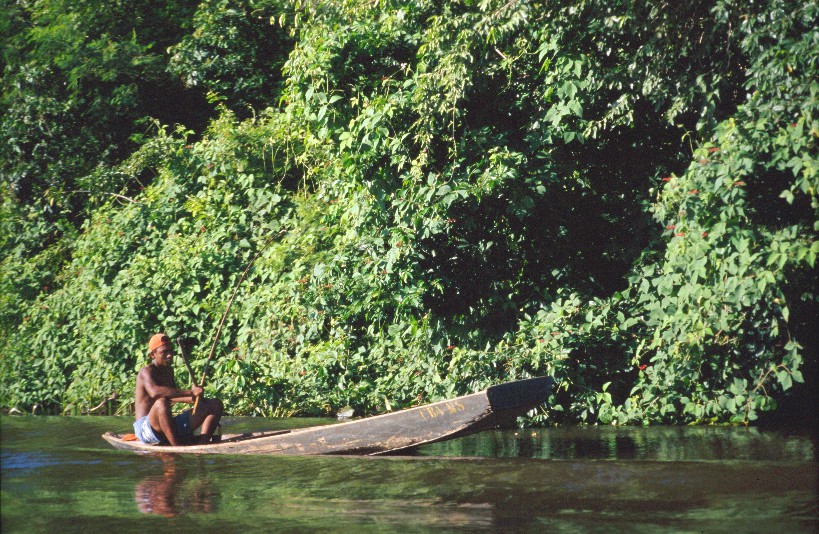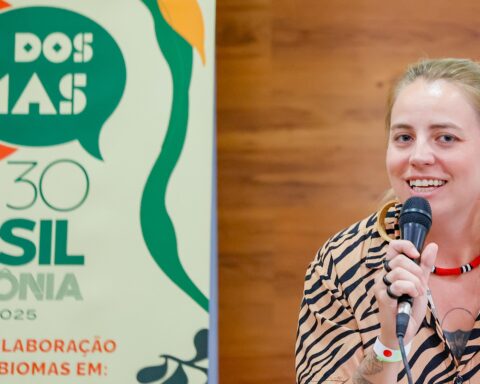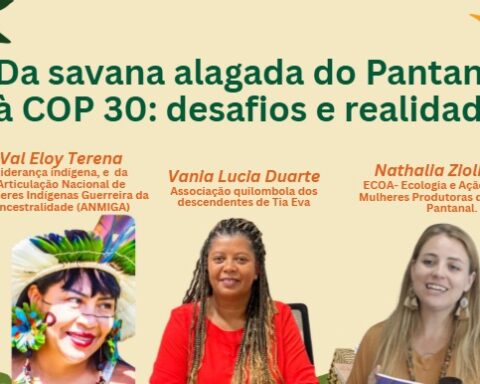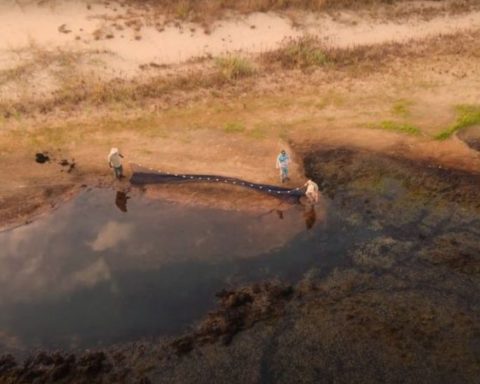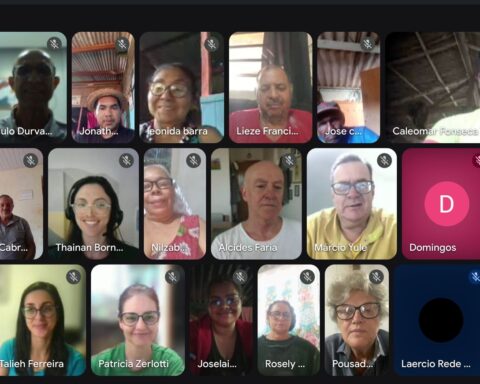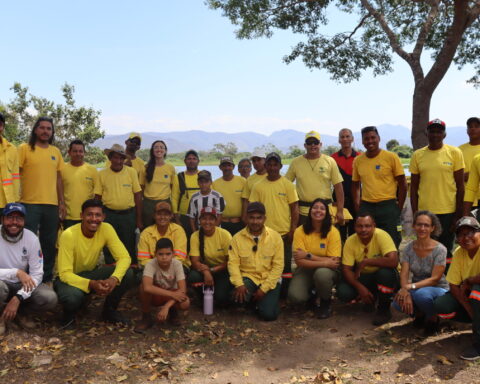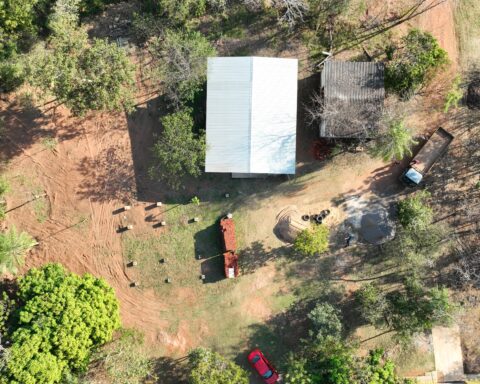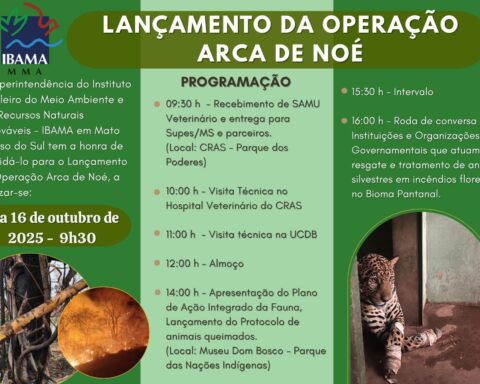Artigo escrito pelo diretor científico da Ecoa, Rafael Morais Chiaravalloti, do Imperial College London (UK), e publicado hoje no site Global Water Forum, trata do manejo de pescadores no Pantanal.
Rafael descobriu, junto com outros colegas pesquisadores, que o caminho para a sustentabilidade nessa área úmida tem a ver com reciprocidade e partilha de informação. Isso o fez sugerir que, em sistemas socio-ecológicos altamente não-previsíveis, as regras devem dar ênfase na partilha de informação e recursos mais do que na rígida aplicação preocupada em reduzir e esgotar recursos. Neste artigo, que está em inglês, Rafael explica como chegou a essa conclusão.
Sustainability is an international goal. Over 190 countries that are part of the United Nations have agreed that we should find ways to guarantee that “human societies must live and meet their needs without compromising the ability of future generations to meet their own needs”1. Private companies have also joined the call for a sustainable future, and most of the large corporations on the globe now have their own sustainability department or sector.
However, while there is a widespread agreement that we should focus our efforts on building a sustainable future, there is almost no agreement regarding the means to achieve it2. People from different countries, cultures, universities, department, research groups or football teams tend to have a completely different view about the best initiatives that would make the world a better place.
Maybe one of the few common understandings in sustainability science and practice regards the presence of property regimes for the protection of natural resources3. According to the classic theory in economics, the presence of informal or formal regulations on users’ ability to exploit nature (property regimes) increases the chance of people having a sustainable future4.
However, in a series of papers published in recent years, some researchers (including myself and colleagues) have started to challenge this classic idea5–7. Essentially, we suggest that, in some cases, a lack of regulations on resource use can also promote sustainability7. To support this contention, consider our research on waterscapes.
Fishing in the largest floodplain in the world
Most of my research is focused on the Pantanal wetland in South America. This ecosystem is considered the largest floodplain in the world, encompassing three countries and over 179,000 km2. The Pantanal is bigger than England or the state of Washington in the USA. The main ecological feature of the Pantanal is the annual flood that can covers up to 80% of the region8. An interesting fact is that the flood does not originate from the rainfall in the Pantanal itself. Instead, it comes from higher areas especially in the northern region of the so-called Higher Pantanal, creating a flood wave that moves from north to south9.
For people who have their livelihoods dependent on fishing in the rivers of the Pantanal, the floodplain has an unpredictable dynamic10. For instance, people must find fishing grounds that will have a quantity of fish that pay off their expenditures on fuel, bait, and fishing gear. However, since the flood wave keeps moving from north to south, every week, new areas will become good and other areas will lose their quality in terms of the quantity of fish. Our research has shown that, normally, fishing grounds stay good for no more than five to seven days11. After a week, fishers have to find new good fishing grounds.
An important aspect in the Pantanal is that the pattern of the flood pulse is completely different from year to year (regarding time, extent, and location) and people cannot use their experience to guess the correct location of a good fishing ground at a specific time7. Also, the Pantanal has a large quantity of aquatic vegetation which constantly blocks or opens the entrance of fishing grounds.
Our research has shown that a fisher living in the Pantanal have up to 300 possible fishing grounds that they could look for fish, but only 4 or 5 of them will have no aquatic vegetation blocking them while also having a reasonable quantity of fish11. It is like a lottery: fishers must guess the lucky numbers in a weekly game. The question is: how do the communities in the Pantanal survive?
Cooperative open access
Our research revealed that fisher communities in the Pantanal do not have regulations on users’ ability to exploit nature. In other words, they do not have any of the well-known property regimes. This is simply because the flood dynamics (eg, unpredictability) protect the system from overexploitation, precluding the need for rules controlling resource use6.
In the Pantanal, the challenge is, therefore, not related to overexploitation of natural resources. On the contrary, by themselves fishers have a low chance of finding fish. Given this, we saw that fishers constantly exchange information about where they found a good number of fish, creating a highly reciprocal socio-ecological system10.
However, reciprocity is a costly action. In the Pantanal, the information is shared only among community members, avoiding people who would benefit from being part of a group without contributing to the others with information about fish. In a recent paper published alongside Professor Katherine Homewood and Dr Mark Dyble, we have called this system: cooperative open access7.
Based on these initial findings, we began to explore whether the same governance structure evident in the Pantanal might also be present in other socio-ecological systems. First, we built a simple mathematical model showing that the idea was plausible6. Then, through the analysis of different case studies, we proposed a simple theoretical model. Our model suggests that highly unpredictable systems communities would require social rules focused on information or resource sharing to be sustainable. On the other hand, it also suggests that more predictable systems would require management rules focused on limiting the quantity of resource people can exploit to be sustainable (the well-known property regimes). We differentiated sustainability between management and social rules7.
The important message here is not related to the categorization of different systems. Rather, we are hoping to highlight the idea that changes in ecological dynamics may require different governance structures based on, sometimes, different levels of open access.
For instance, the work from Professor Katherine Homewood has shown that pastoralists in East Africa living in the rangelands have a predictable ecosystem during the dry period and communities display a governance structure based on clear rules and management practices. However, in the wet season, grazing on new growth is increasingly available but patchy, unpredictable, and of variable quality. During this period, she describes that pastoralists rely on cooperative information sharing, a governance structured underpinned by social rules7.
To sum up, our objective with this research is to expand our understanding about sustainable management of natural resources. I believe that this new perspective on resource use and property regimes can support more appropriate sustainable development schemes, especially in areas where resources are constantly moving around, as in waterscapes. But also, it can help us to better design initiatives in the face of the new ecological dynamics brought by climate and other Anthropocene changes.
We argue that if we keep enforcing strict management rules as a panacea solution instead of adopting a focus on reciprocity and information exchange on resources, in some situations, we might be pushing ourselves closer to the collapse that everyone is trying to avoid.
More information: r.chiaravalloti@imperial.ac.uk
References
1. WCED WC (1987). Our common future. Oxford University Press.
2. Scoones I (2016). The Politics of Sustainability and Development. Annu. Rev. Environ. Resour. 41, annurev-environ-110615-090039.
3. Robinson BE et al. (2018). Incorporating Land Tenure Security into Conservation. Conserv. Lett. 11, e12383.
4. Behnke R, S Robinson & EJ Milner-Gulland (2016). Governing open access: Livestock distributions and institutional control in the Karakum Desert of Turkmenistan. Land use policy 52: 103–119.
5. Moritz M et al. (2018). Emergent sustainability in open property regimes. Proc. Natl. Acad. Sci. 115: 12859–12867.
6. Chiaravalloti RM & M Dyble (2019). Limited open access in socioecological systems: How do communities deal with environmental unpredictability? Conserv. Lett. 12, e12616.
7. Chiaravalloti RM, K Homewood & M Dyble (2021). Sustainability of social–ecological systems: The difference between social rules and management rules. Conserv. Lett. 1–7 doi:10.1111/conl.12826.
8. Junk WJ, CJ Silva, CN da Cunha & KM Wantzen (2011). The Pantanal: Ecology, Biodiversity and Sustainable Management of a Large Neotropical Seasonal Wetland. Pensoft.
9. Padovani CR (2010). Dinâmica Espaço-Temporal das Inundações do Pantanal Carlos. Universidade de São Paulo.
10. Chiaravalloti RM (2017). Overfishing or Over Reacting? Management of Fisheries in the Pantanal wetland, Brazil. Conserv. Soc. 15: 111–122.
11. Chiaravalloti RM et al. (2021) Resilience of social-ecological systems: drastic seasonal change is associated with economic but not social flexibility among fishers in the Brazilian Pantanal. Ecol. Soc. 26, art30.
Dr Rafael Morais Chiaravalloti started in the environmental field in Brazil in 2005. After graduating in Biology he started to work for two NGOs in Brazil – Institute of Ecological Research (IPE) and Ecology and Action (ECOA). He published two books on environmental outreach, including Sustainable Choices – now part of the curriculum for public school teachers in Brazil. He did his PhD in UCL Anthropology seeking to better understand socio-ecological dynamics of unpredictable systems. In 2020, he started a postdoctoral fellowship at Smithsonian Conservation Biology Institute and, in 2021, he moved to Imperial College London, Centre for Environmental Policy, for a research fellowship.
